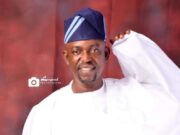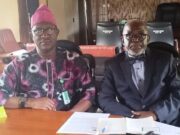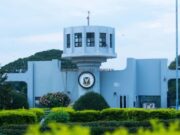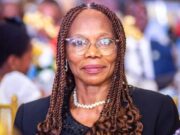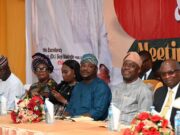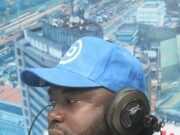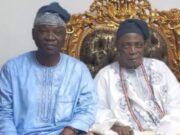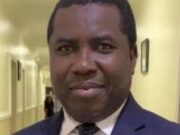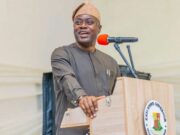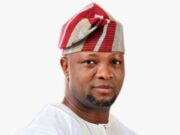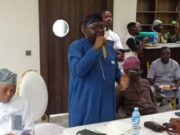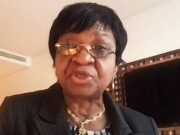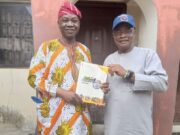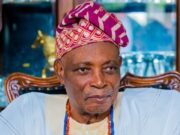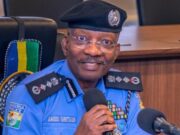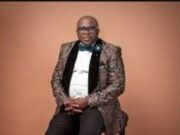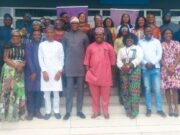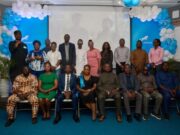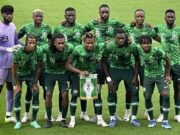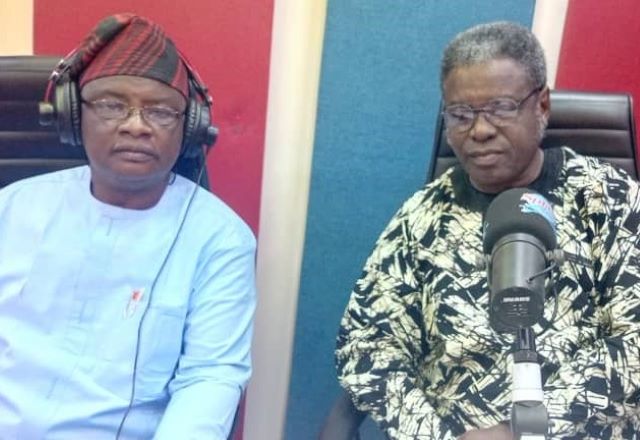
Our celebrity guest, Alagba Biodun Oduwole, former Director/Editor-in-Chief of Nigerian Tribune and Sketch Newspapers, was on our radio show, Parrot Xtra/Ayekooto, anchored by Olayinka Agboola on Splash 105.5FM, recently. During the interaction, the veteran journalist revealed how power play forced him out of the defunct Sketch Newspaper and led to its collapse, alongside other salient issues. Excerpts:
How have you been doing sir?
For many years, I lived as though I had full control of my life. I did not know God until 1995, when I was 45 years old. At that time, I was Editor-in-Chief of the Nigerian Tribune. On the day I was to proceed on annual leave, one of our editors, Philip Ukana, approached me as I was getting into my car.
He told me the Lord instructed him to preach to me and urged me to surrender my life to Christ. I dismissed him, saying we would discuss when I returned. That was the last time I set foot in the company.
When God wants to deal with a man, He takes away everything that gives him pride. I lost my job, money, and everything else. But when I surrendered to Him, I was restored. Afterward, I worked at Sketch, South-South Express and Compass.
One night, God told me He had trained me in the media to establish a newspaper for Him—not a regular one, but one that would testify about men’s relationship with God. That was how Christian Alive was born in 2003. We have published it free of charge ever since, focusing on people whose lives changed through Christ.
From your wealth of experience, how will you wish to define a journalist?
This is a big issue in today’s media. Many who call themselves journalists are not. If you cannot plan a page or design a layout, you cannot call yourself a newspaper journalist.
Being able to write does not make one a journalist. Journalism is about the full production process—news gathering, editing, and publishing in newspapers, radio, or television. Similarly, speaking into a microphone alone does not make one a broadcast journalist.
Other professions like medicine, law, and accountancy certify their practitioners. Journalism needs a similar system of certification through examinations and training. Until then, employers will keep hiring anyone.
I’m glad that some are now calling themselves bloggers, skit makers, or content creators. But true journalists must apply the 5Ws and H with professional competence.
What is your view on the Freedom of Information Act in Nigeria?
There is no absolute freedom for journalists anywhere in the world. Freedom is always limited, and those limits depend on professional competence, societal support, and respect earned.
If a journalist is arrested for publishing sensitive information, very few people will defend him. This discourages journalists from pushing boundaries.
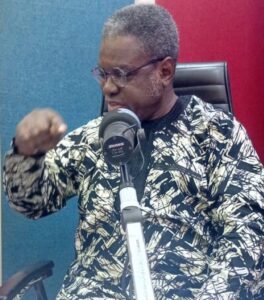
What major lesson did you learn as Editor-in-Chief of the Nigerian Tribune and Sketch?
I once wrote in the Tribune newsroom: “The business of news is more business than news.” A paper must first survive financially before it can inform and educate.
During Abacha’s regime, some newspapers were shut down. Someone suggested Tribune should join in criticising the government. I reported this to Mama, Chief (Mrs) H.I.D. Awolowo. She advised me not to follow that path. That wisdom is why Tribune still survives today.
Running a newspaper is about balancing credible reporting with financial survival.
Will that balance not affect truth-telling?
You can still tell the truth, but it must be presented wisely.
When General Diya was arrested for coup plotting, our Saturday Tribune headline was “Who Wants Diya Dead?” Unknown to us, the editor who wrote it was related to Diya’s chief security officer, who was also arrested.
I travelled to Abuja that weekend to see Diya, only to learn he had been arrested. Under a military regime, this could have implicated us. What saved Tribune was our reputation for being loyal and responsible.
How exactly did Sketch collapse?
It is sad that Sketch, once a cultural pride, was allowed to die.
When I became Managing Director, the paper was in crisis, debts, indiscipline, incompetence. I restructured operations, enforced discipline, redesigned the newspaper, and renegotiated debts. Salaries were paid, adverts returned, and circulation improved.
The paper was so revived that people mistook it for a new brand. Even Otunba Jobi Fele called to congratulate me.
But that success threatened others. Some feared losing their influence and petitioned Governor Segun Osoba of Ogun State. At an Oodua Governors’ meeting, Osoba insisted I be removed, despite objections from Governor Niyi Adebayo of Ekiti and Group MD Omotosho.
The excuse was that the military regime had appointed me in 1999. When I was eventually removed, staff members wept as I packed my things. From that moment, Sketch slipped back into coma and eventually died.
What was your experience as President of the Guild of Editors?
It was a turbulent period, 1993–1996, during the annulment of June 12. Editors from the North wanted the Guild to stay out of the crisis, and some even attempted to split it. By God’s grace, we were able to keep the Guild united.






